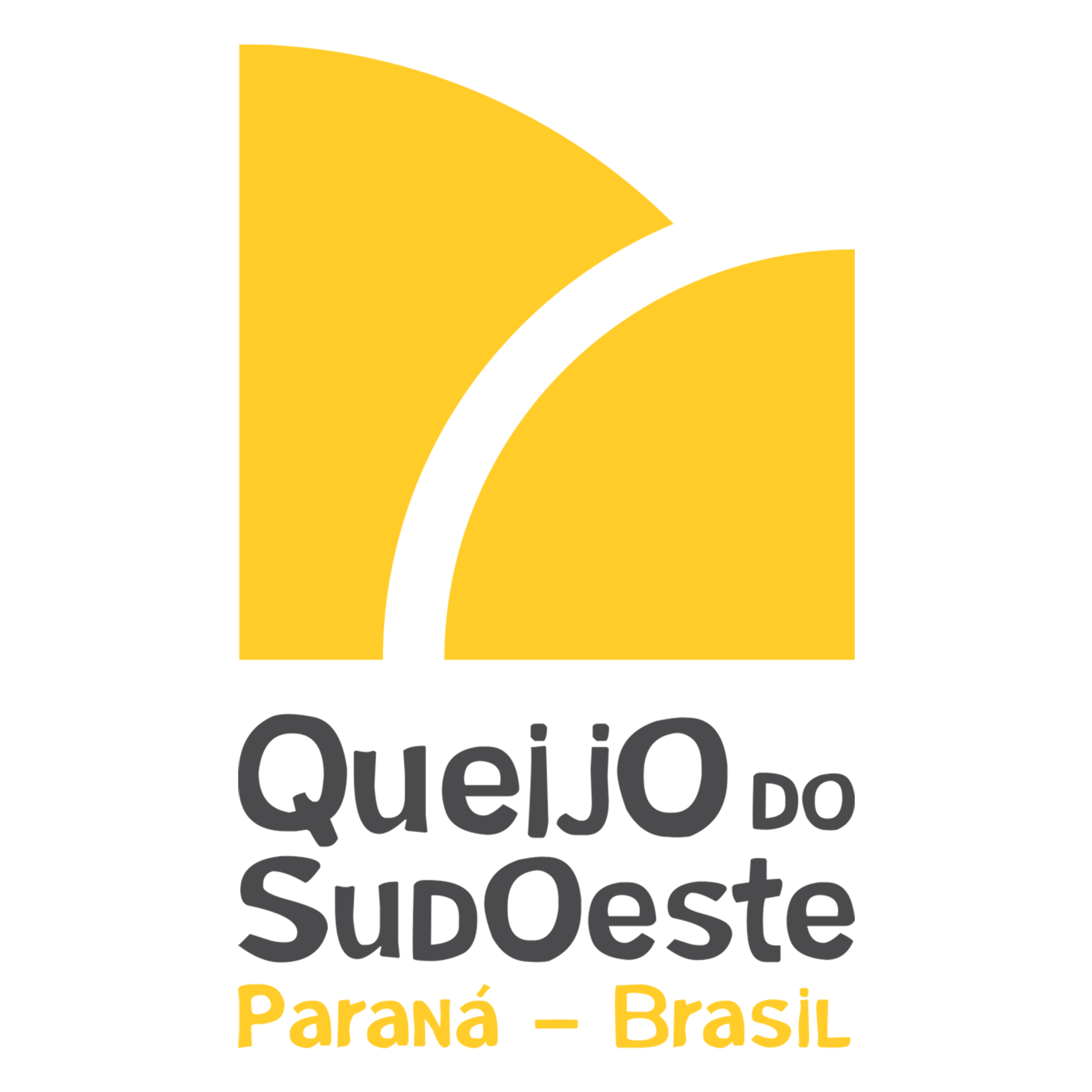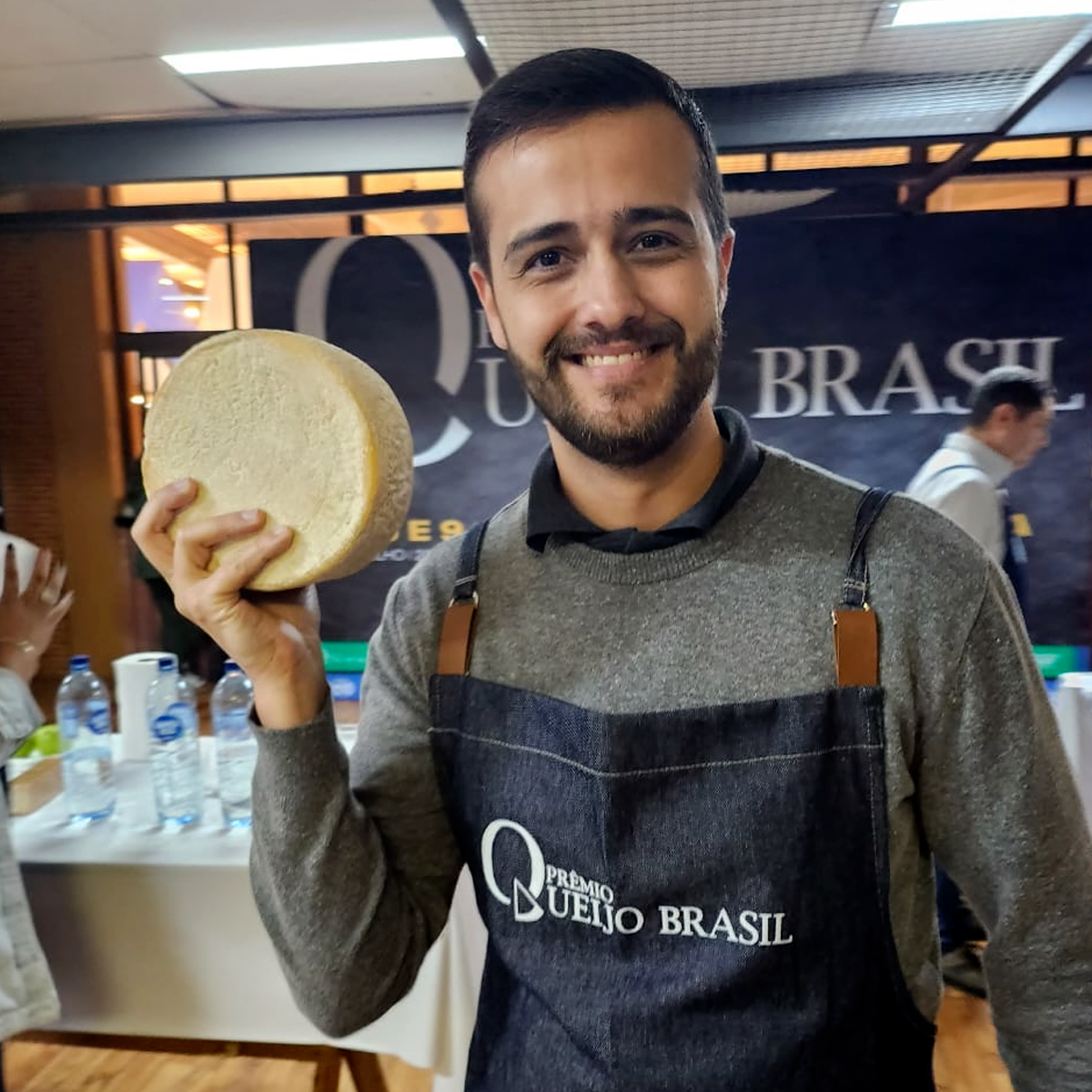Colonial cheese from Southwest Paraná receives Geographical Indication

The colonial cheese from Southwest Paraná received, this Tuesday (17), the Geographical Indication (GI) registration granted by the National Institute of Industrial Property (INPI). The artisanal production receives the seal of Indication of Origin (IP), one of the GI modalities, which recognizes the region as a production center and cheese reference. The registration covers the food produced in 42 municipalities that are located in the delimited geographic area.
With the distinction of being GI, there is the expectation that producers will have access to new markets, ensuring greater added value and revenue. The southwest region of Paraná has 18 cheese producers, from 11 municipalities, who are members of the Association of Artisanal Cheese Producers of Southwest Paraná (Aprosud) and are responsible for the production of 17 tons of cheese per month.
According to the president of Aprosud and producer, Claudemir Roos, achieving the IG is a dream come true. He points out that a lot of work was put in and that the certification is a recognition to the producers for all their dedication.
It will undoubtedly attract the attention of more buyers, increase the value of our products and, certainly, increase income for the countryside and for the families who make a living from cheese production. In addition, it will attract the attention of other farmers who want to produce. The region will benefit from this.
Claudemir Roos, president of Aprosud.
Alyne Chicocki, a consultant at Sebrae/PR, says that the institution supported the entire process of consolidating this achievement.
“The GI is more than a seal — it is the recognition of a history that has been shaped for decades by the hands of families who experience colonial cheese every day. Southwest Paraná has a strong productive identity, marked by tradition, artisanal know-how and the union of producers. Sebrae/PR had the honor of walking alongside Aprosud and several partners in this process,” Alyne points out.
For her, The achievement is also the result of work focused on historical research, technical support, preparation of the dossier and, mainly, promoting the appreciation of this culture. .
“Today we celebrate a collective victory, which represents new market opportunities, more income for the countryside and the strengthening of a region that has a lot to offer. In addition, together with other partners, we support important events for regional cheese, such as Inova Queijo and the necessary qualifications for producers. All of this made the GI possible”, adds Alyne.

Recognition and responsibility
For producer Cristina Bombonato, from the municipality of Pinhal de São Bento, winning the GI brings even greater responsibilities while also recognizing local culture.
“It involves more rigorous and safe production processes through good practices on the property. This makes a difference for the consumer and brings credibility. In addition, the GI is also a historical recognition, since Italian colonization brought this culture of milk and cheese production. It is the preservation of this identity that we carry,” he highlights.
History and generations
In Angela Bach's family, from Santa Izabel do Oeste, which has been producing cheese since the 1990s, the relationship with cheese goes back generations.
A tradition passed down from grandmother to children and, consequently, to us, grandchildren. It all started with two dairy cows, in an artisanal way. Over the years, we have faced difficulties and challenges, but we have grown. This achievement of the IG means a lot, because it brings recognition to this story that is repeated in so many other families.
Angela Bach, producer.
The producer says that the property produces around 800 liters of milk per day and delivers cheese throughout the region. “We produce colonial cheese, seasoned colonial cheese and Tia Paulina colonial cheese (matured). All of them follow family recipes and are produced with milk from our happy cows on the property,” concludes Angela.

Collective support
The process of obtaining the IG was supported by Sebrae/PR, the Paraná Rural Development Institute (IDR-Paraná/Iapar/Emater), the Paraná State Department of Agriculture and Supply (Seab), the Paraná Federal Technological University (UTFPR), as well as local governments and producers in the region. Only producers associated with Aprosud who meet the technical requirements and are monitored by the regulatory board may use the seal.
Dairy Basin
According to data from the Department of Rural Economy (Deral), of the Secretariat of Agriculture and Supply of Paraná (Seab), The Southwest region has approximately 20 thousand milk producers, responsible for an estimated production of 1 billion liters per year , being the main dairy basin in Paraná.
Geographical area
The geographical area delimited by the IG includes the municipalities of:
Geographical Indications of Paraná
With the conquest of the colonial cheese from Southwest Paraná this Tuesday (17), Paraná achieved 19 Geographical Indications and remains the second Brazilian state with the most GI, which are: jaguar meat from Curitiba; annatto from Paranacity, cracow from Prudentópolis; honey from Ortigueira; colonial cheeses from Witmarsum; cachaça and brandy from Morretes; molasses from Capanema; special coffees from Northern Pioneiro; strawberry from Northern Pioneiro; wines from Bituruna; guava from Carlópolis; honey from Western Paraná; barreado from the Paraná Coast; banana candy from Antonina; yerba mate from São Matheus; chamomile from Mandirituba; fine grapes from Marialva and rye bread from Curitiba.
In addition to these recognized Geographical Indication, there is also a Geographical Indication granted to Santa Catarina, which also involves municipalities in Paraná and Rio Grande do Sul: honeydew honey from bracatinga from the Southern Plateau of Brazil. The state also has 11 products with the GI filed, still in the process of being analyzed by the INPI: craft beers from Guarapuava; honey from Capanema; steamed bread from Palmeira; pies from Carambeí; honey from Prudentópolis; coffee from Mandaguari, ponkan from Cerro Azul; sheep and goats from Cantuquiriguaçu; ginseng from Querência do Norte; coffee from the Apucarana mountain range and oysters from Cabaraquara.
Press Office Sebrae Paraná Phones: (46) 99919-0736 | (41) 3330-5895
agenciasebrae





